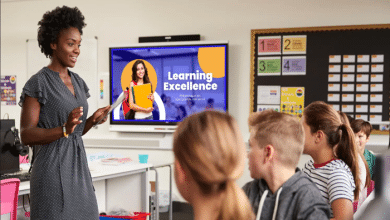
Flashcards are an incredibly effective learning tool that can help you retain information effortlessly. By promoting active recall and utilizing spaced repetition, flashcards optimize the study process and ensure long-term memory retention. Whether preparing for exams, mastering a new skill, or revisiting old concepts, flashcards simplify learning and boost confidence. This article will explore why flashcards are so effective, how to use them properly, and compare two popular digital flashcard tools: Quizlet and Anki.
Why Flashcards Work
Flashcards are effective because they leverage two powerful learning principles: active recall and spaced repetition.
- Active Recall: This involves retrieving information from memory without external cues. It strengthens your memory and enhances your ability to recall information under pressure, such as during exams.
- Spaced Repetition: By revisiting material at increasing intervals, spaced repetition ensures that you review information before forgetting it. This method embeds knowledge deeply into long-term memory, reducing the need for cramming.
Benefits of Using Flashcards
Flashcards offer several advantages, making them a go-to study method for learners across all disciplines:
- Enhanced Focus: They break information into small, digestible chunks, allowing you to focus on one concept at a time.
- Interactive Format: Flashcards keep you actively engaged in your study sessions.
- Adaptability: They can be used for any subject, from language learning to technical topics.
- Portability: Flashcards are easy to carry and can be reviewed anytime, anywhere.
- Customizable: You can tailor your flashcards to meet your specific learning needs. Tools like a flashcard generator allow you to create personalized flashcards tailored to your specific learning needs.
How to Create Effective Flashcards
The quality of your flashcards determines how effectively they support your learning. Here are some tips for creating impactful flashcards:
- Keep It Simple: Focus on one concept per card to avoid overwhelming yourself with too much information.
- Use Clear Language: Ensure that the text is concise and easy to understand.
- Incorporate Visuals: Add images, diagrams, or symbols to reinforce learning and improve retention.
- Frame Questions: Write a question on one side and the answer on the other to encourage active recall.
- Organize by Topics: Create separate decks for different subjects or categories for more structured study sessions.
Effective Flashcard Usage Tips
Creating flashcards is just the first step; using them effectively is crucial. Here are some best practices:
Consistent Review
Schedule regular study sessions to reinforce learning and prevent forgetting. Consistency is key to building a strong memory foundation.
Shuffle the Deck
Avoid memorizing the sequence of your flashcards by shuffling them frequently.
Practice Both Directions
Quiz yourself by recalling answers from questions and vice versa. This strengthens comprehension and ensures a deeper understanding.
Focus on Weak Areas
Spend extra time reviewing flashcards that cover topics you find challenging.
Advanced Flashcard Strategies
Once you’ve mastered the basics, consider incorporating these advanced techniques to optimize your study sessions:
The Leitner System
Organize flashcards into levels based on your familiarity with the material. Review lower-level cards more frequently and move them to higher levels as you master the content.
Gamify Your Studies
Turn studying into a game by setting goals, tracking progress, and rewarding yourself for hitting milestones.
Use Mnemonics
Pair complex concepts with memorable phrases or vivid imagery to make them easier to recall.
Collaborate with Study Groups
Share your flashcards with classmates or study groups to gain diverse perspectives and reinforce learning through discussion.
Digital Flashcards: Quizlet vs Anki Blog Post
When it comes to digital flashcards, Quizlet and Anki are two of the most popular platforms. If you’re trying to decide which one is better, here’s a detailed Quizlet vs Anki blog post comparison:
Quizlet
- Ease of Use: Quizlet’s intuitive interface makes it perfect for beginners.
- Interactive Learning Modes: Offers engaging tools like matching games, practice tests, and flashcard decks.
- Collaborative Features: Allows users to access and share decks with others, making it ideal for group studies.
- Cross-Platform Access: Study seamlessly across devices, including phones, tablets, and computers.
- Best For: Visual learners and those who prefer a gamified, interactive learning experience.
Anki
- Spaced Repetition: Anki uses a sophisticated algorithm to schedule reviews, maximizing long-term retention.
- Customizable Decks: Users can personalize their decks with multimedia elements like images, audio, and video.
- Open Source and Free: Anki is a cost-effective solution for learners on a budget.
- Detailed Analytics: Tracks your progress and highlights areas that need improvement.
- Best For: Advanced learners who prefer data-driven, in-depth study sessions.
Both tools have their strengths, so the choice ultimately depends on your learning style and goals.
Avoiding Common Flashcard Pitfalls
To get the most out of your flashcards, avoid these common mistakes:
- Overloading Cards: Stick to one concept per card to maintain clarity.
- Skipping Challenging Topics: Focus on difficult material rather than avoiding it.
- Irregular Practice: Regularly scheduled reviews are essential for retention.
- Passive Reviewing: Actively test yourself instead of simply reading through your flashcards.
Using Flashcards for Test Preparation
Flashcards are especially useful for test preparation. They allow you to break down complex topics into manageable parts and focus on areas that need improvement. By consistently reviewing and prioritizing weaker subjects, you’ll be better prepared for any exam.
Conclusion
Flashcards are a powerful, adaptable tool that can transform your learning experience. By employing active recall, spaced repetition, and advanced strategies like the Leitner system, you can master even the most challenging subjects. Whether you prefer traditional flashcards or digital tools like Quizlet and Anki, consistency and thoughtful application are key. Start integrating flashcards into your study routine today and enjoy effortless, efficient learning!




